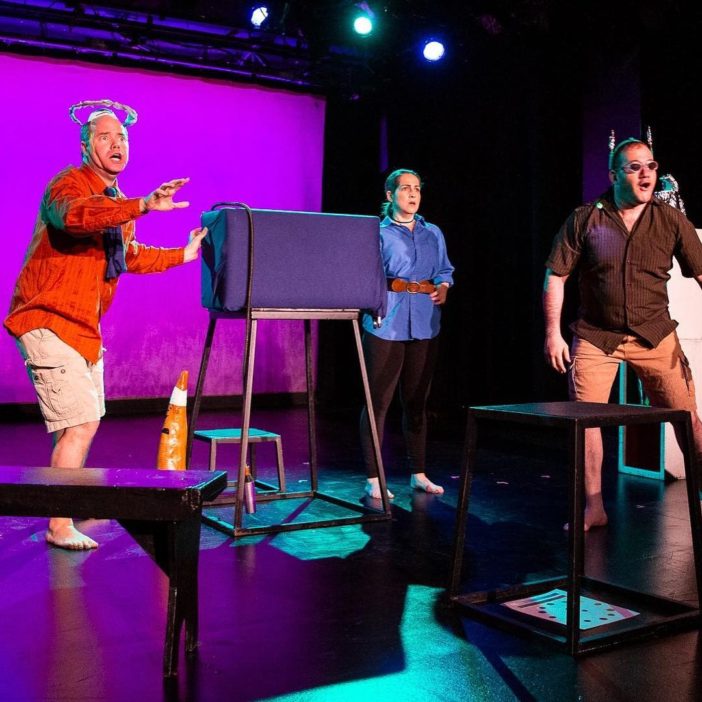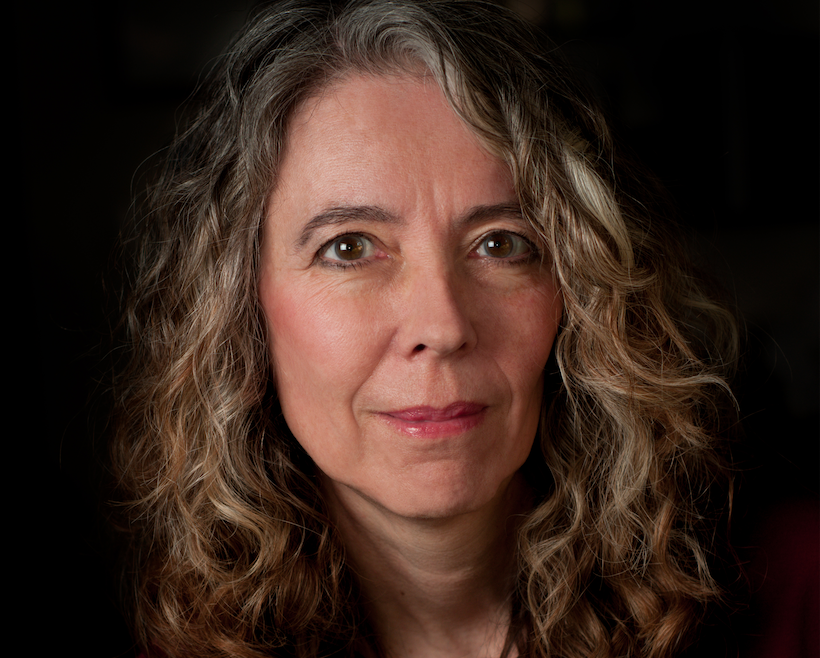Hi Erica!
What inspires your creativity?
One of the ways I get inspiration is by going to museums. I love the idea that beautiful objects are stored and cared for so we can look at them. I wrote an article about how I love to walk through museums, letting myself absorb the atmosphere, maybe reading the informational cards, maybe not.
I’m always trying new things in my artistic practices. I recently wrote my first terza rima, a poetic form Dante invented for The Divine Comedy. It was difficult, took weeks and dozens of drafts, but I finished it! In the interim, I discovered a topic for more poems: I’ve been longing to go somewhere, but since we’re quarantined due to the coronavirus pandemic, all I can do is write about places I miss.
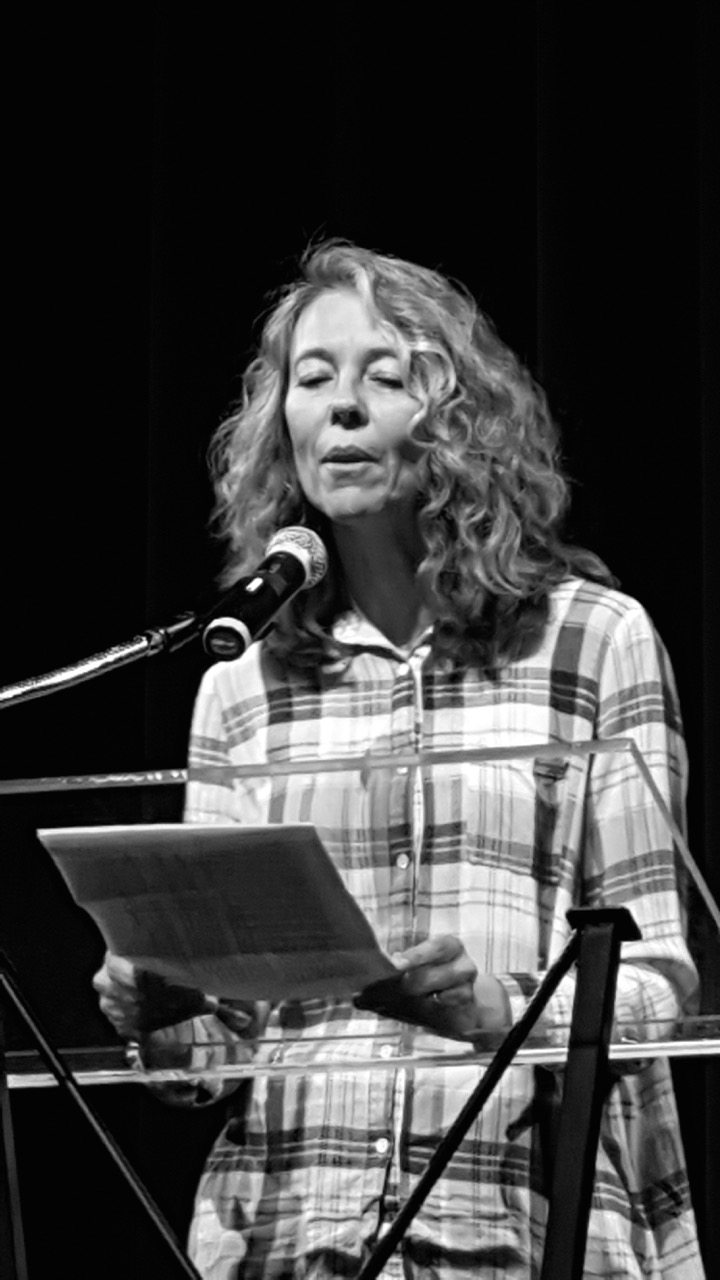
Tell me about your work with Girls’ Voices Matter. Where did the idea come from?
Girls’ Voices Matter is the daughter of Media Poetry Studio, a media arts program I co-founded in 2014 in California. Media Poetry Studio was the result of a brainstorm I had with two other poet friends of mine. We were all Poets Laureate of our respective towns in the Bay Area, and we wanted to do something for young people in the area of the arts. We came up with the idea of a summer camp where teenaged girls could learn how make short films based on their own poetry. It was very successful and we ran two camps, one in 2015 and one in 2016.
In 2017 I moved to Eugene, Oregon. I spent some time just getting acclimated, and then worked with a business consultant named Kaya Singer, who helped me figure out how to refine the message of what I wanted to convey. Girls’ Voices Matter came out of that work: it’s more focused on storytelling, feminist film studies, and various forms of media. I’m lucky to have the talents of Dr. Claire Graman, whose specialty is women in film. She’s created several classes and is a wonderful teacher.
Are there any surprises — or setbacks — That have fueled you to continue to build it?
In the beginning there were nothing but setbacks. It seemed that no one was listening to my very important message about teen girls and media. It took a lot of work, and continues to, to get people to understand that we have a serious problem with the inequality in the film industry. There’s just one female director for every twenty-two male directors, for example, and speaking parts for women have actually declined in the past twenty years.
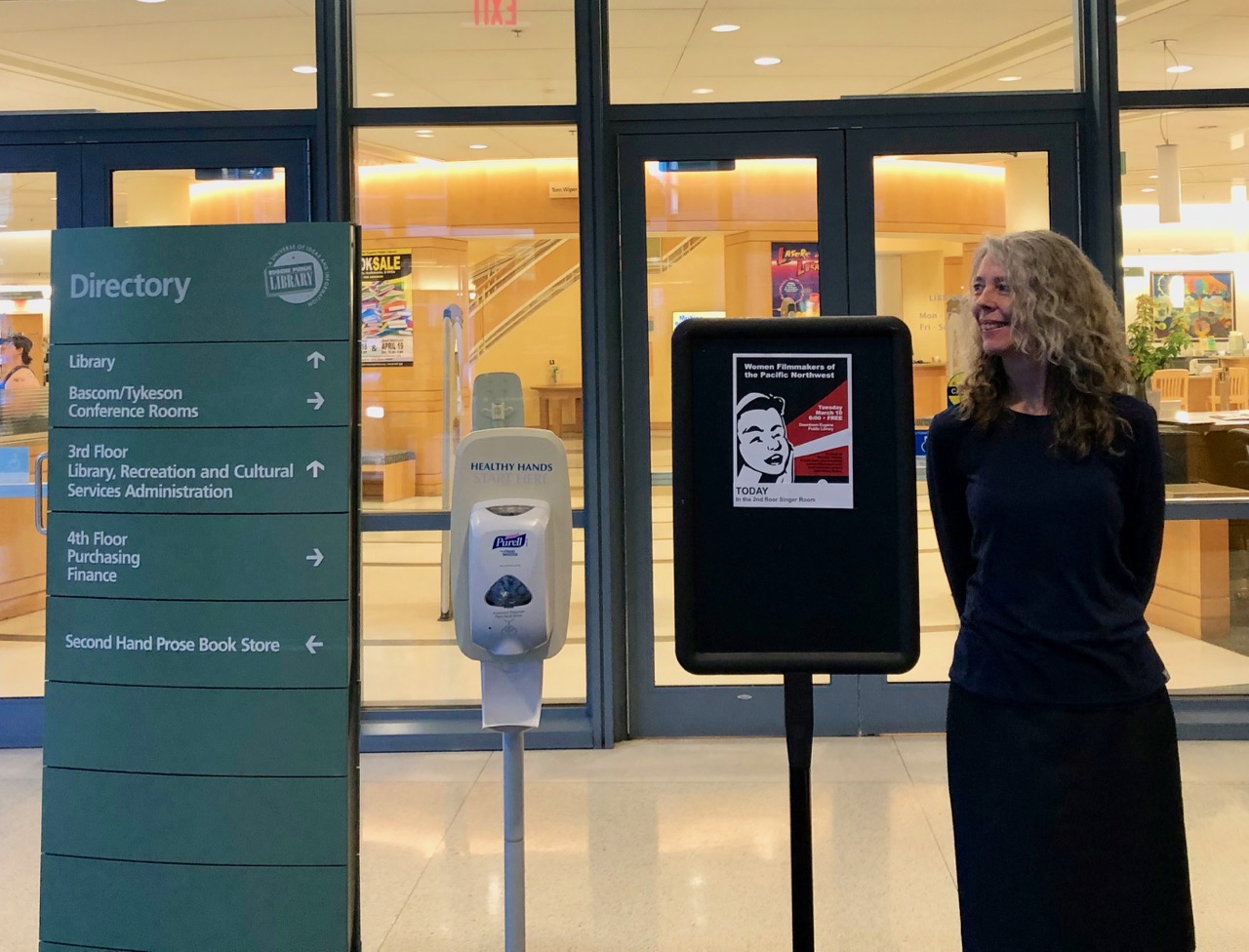
What do you do for a living, and does that play into your artistic life?
Luckily for me, this is what I do for a living, as well as freelance writing and teaching.
What’s the earliest memory you have of the arts? Music, dance, theatre, visual art — Whatever!
I was an art-nerd as a kid. I took piano lessons starting at age seven, wrote my first poem at age eight, and wanted to be a dancer. I still love music and dance, but writing is what stuck. In my late 40s, I got curious about photography and video, and now those are part of my creative practice as well. I love the combination of visual art and writing.
Looking ahead, what do you feel most excited about creatively?
I’m thrilled to be in the process of developing a series of courses for Girls’ Voices Matter, which we call our “Feminist Film Curriculum.” The curriculum will be available in 2021, will be taught online, and focuses on the history of women in film. There will also be a workshop on how to make a film in one week.
I’m writing more short personal essays and trying to get a poetry collection completed and sent out by the end of 2020. I also have some poetry videos I’d like to complete. I’m thrilled to have my first major screening at the Zebra Poetry Film Festival in Berlin in November. This is for a short video I made from a poem by Canadian poet, Al Rempel, with voice by Sandro Pecchiari from Italy. My youngest son made the music. So it’s a truly international effort, and I enjoyed making the video very much.
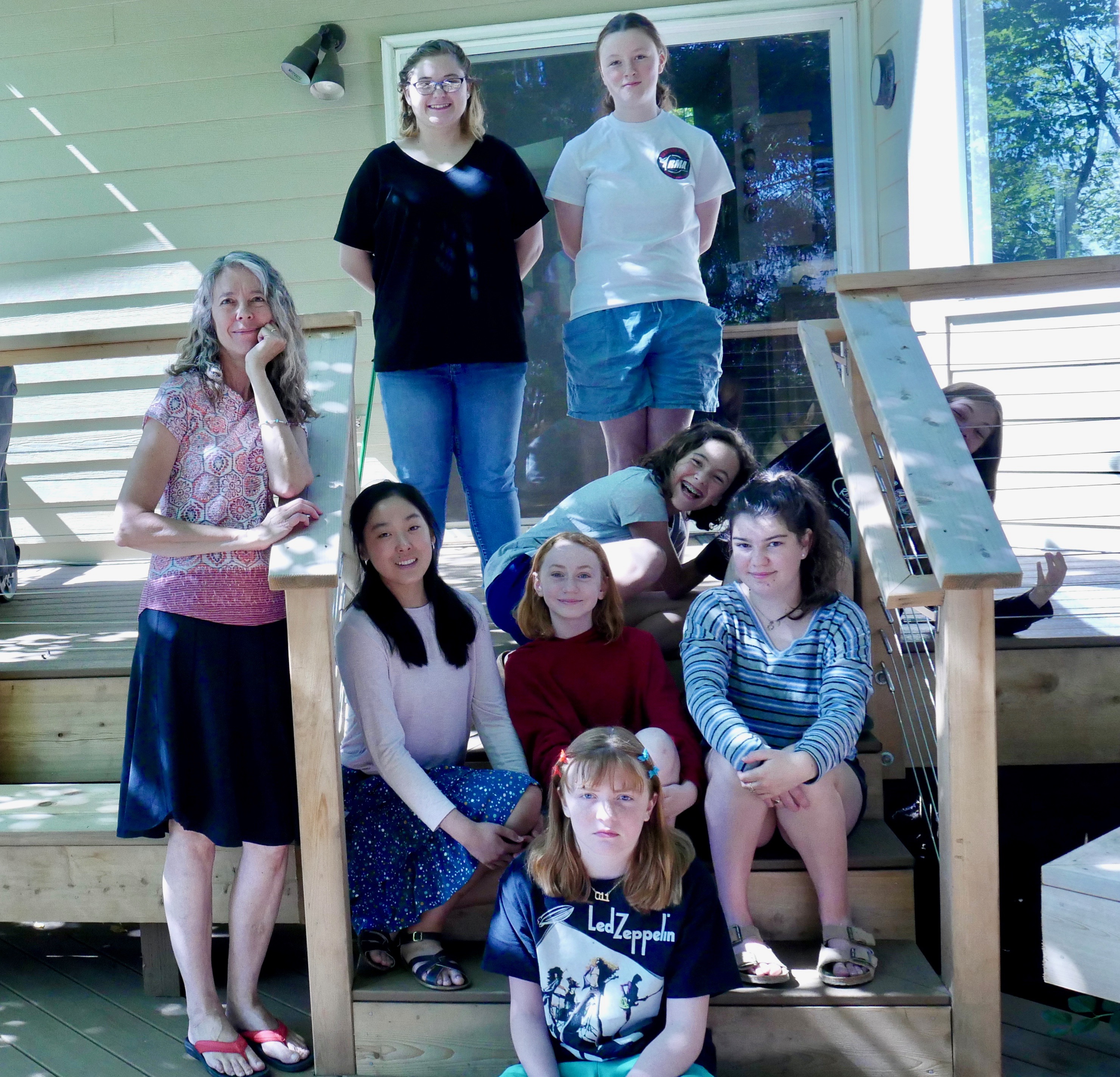
How do you balance creative life and all of the rest of it?
That’s not easy, ever. I think it’s especially hard for women, as we’re tasked with so many family responsibilities. I think of the sculptor Ruth Asawa and her many children, working at night when the kids were asleep. This robs your physical and emotional energies. When I was raising my kids and working full-time in the computer industry, I rarely had time for creative pursuits. Gradually my life changed: the kids grew up, my work life changed, and I was able to move writing back to center stage.
I have many of the small notebooks I wrote in during those busy years, full of tiny fragments of ideas next to birthday gift lists, Christmas cards, reminders to do so many things. Even then, I was trying to capture the ideas that went through my head. This makes me think of a quote from Ruth Asawa: “Sculpture is like farming. If you just keep at it, you can get a lot done.” That goes for any art, whether sculpture, writing, or dance.
What’s it like making art in your community? Tell us about where you live!
I live in Eugene, Oregon, a very art-friendly town. One of the things I love about living here is the giant murals painted on walls all over the town. I don’t even have to go to a museum to see art—all I have to do is drive the streets of Eugene! However, I would make art no matter where I lived. I even think living in a less art-aware town would probably make me even more stubborn about making art. But I really like it that I’ve met so many writers, poets, painters, and others involved in the arts here in Eugene. My husband and I have a little joke about that: in Los Angeles, everyone’s an actor, even if they work at other jobs. In Eugene, everyone’s a poet!
How ‘bout your family? Who’s in your inner circle, and how do they support your work?
My husband is my #1 supporter and fan. He’s extremely patient when I barge into his office and demand that he listen to the brilliant thing I just wrote. As a child growing up, my parents encouraged my brothers and I in art, music, reading and writing. My parents made the deliberate decision to not have a television in the house when we were kids, so we had to entertain ourselves. I think that’s one of the most important things they did for us. We had an old Wurlitzer piano that had belonged to my grandmother, weekly trips to the library, a backyard, and art supplies.
These days, my circle of writer friends sustains me. We share poems and see each other at readings. With poet Joan Dobbie, I help run the River Road Reading series, which is now online due to the pandemic.
What art knocked your socks off recently? Could be a play — Or an album, a movie, an exhibit, a novel, anything! — What made you connect with the art and the artist’s work?
I’m in the middle of Sharon Olds’ latest book, Arias, and as always, I’m stunned at her ability to, in a just a few sentences, tell an entire story about her life. I binge-watched The Handmaid’s Tale recently and although much of it was hard to watch, I think it’s the best thing streaming right now. I was very moved by the exhibition “Dreams Before Extinction and Under the Earth, Over the Moon” featuring paintings by Naeemeh Naeemaei, which was at the Jordan Schnitzer museum in Eugene and was the last thing I saw there. I think it’s the tenderness of the paintings that struck me, and how the artist created a link between humans and animals.
What’s next on the horizon for your creative world?
Developing the Feminist Film Curriculum, writing essays and poems, and creating some classes for writers.
Any advice for someone just starting out in this artform?
There’s so much bad advice for people starting out in any art, and so much that’s simply not useful. It’s hard to be an artist. I won’t deny that. It takes an enormous amount of work, and an ability to withstand a lot of rejection. For example, my work is rejected between 75-90% of the time. This is after years of writing and sending my work out. I have a rule: I allow myself to feel sad for exactly ten minutes after receiving a rejection, and then I send the piece out again.
If you are just starting out, I would advise that you make friends with other people just starting out and study the work of those whose work you admire. And don’t give up. Try many things; fail many times. From failure comes creativity, and that’s how you get better. There are no overnight successes!
How do you relax and unwind?
Gardening is the best way for me to relax. I get exercise, fresh air and vegetables from my little patch of land, which makes me very happy, especially after a rejection! I also read, watch movies, and visit friends.
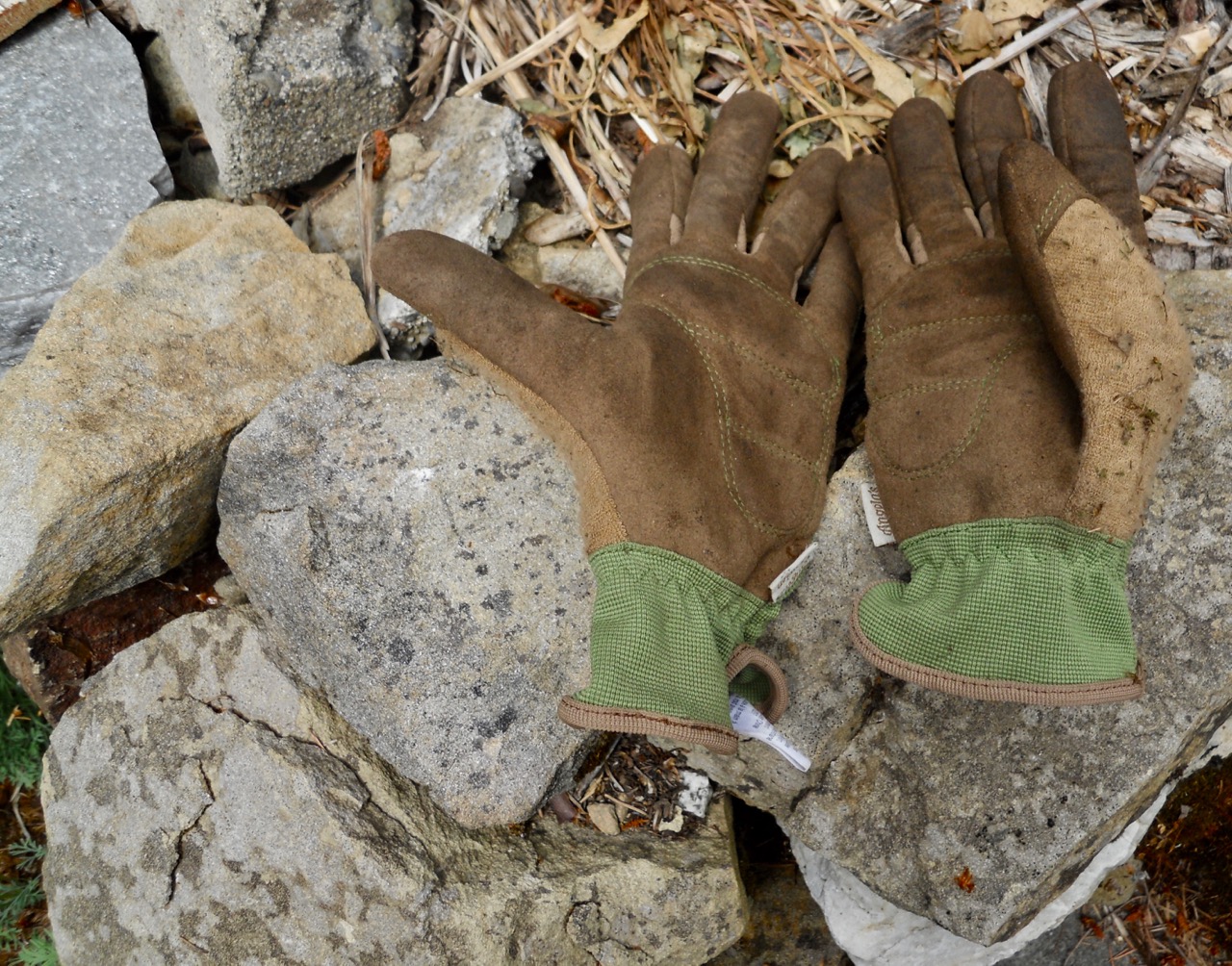
Where can we find your work? In print, and online, to read?
My website: www.ericagoss.com, where you’ll find links to recent writing and all of my books, and at Girls’ Voices Matter, where we post weekly about women in film, video lessons, creativity guides, and more.
Finally – Favorite dessert?
Crème brulee.
